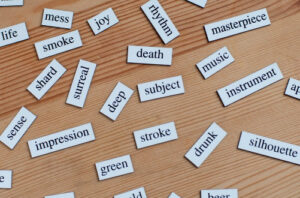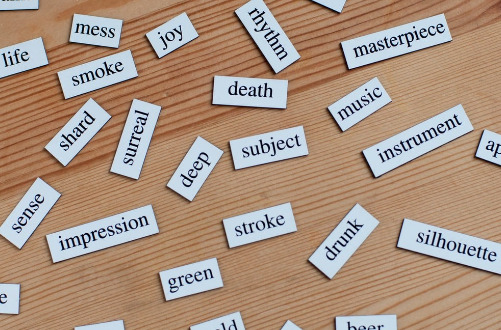英語を効率的にマスターしたい!というのは、いろんな人の希望です。
日本人が考える英語の効率的なマスター方法は、日本人がいろんなところで書いているものを、見ることができます。
一方で、本来の英語の使い主である、英語のネイティブ・スピーカーはどのようにすれば効率的にマスターできると考えているのでしょうか?
これらの視点は、日本人が考えるものとは違った考え方のものもありそうです。
ちょうど、日本人がどのように日本語を学べばいいと思っているか?というのと同じだと思います。
今日は、3日間に亘って取り上げてきたこの話題をまとめてみたいと思います。
では、記事全体を読んでいきます。

第二言語として英語を学習することは、困難な作業となる場合があります。 しかし、一度コツをつかめば、言語の勉強に費やしたあらゆる努力と時間はそれだけの価値があるでしょう。 英語がペラペラになると旅行がもっと楽しくなりますよ。
Also, you don’t have to wait for the latest best-selling book or Hollywood movie to be translated in your native language to enjoy them. To help you in this endeavor, here are some practical tips on how to learn English effectively.
また、最新のベストセラー本やハリウッド映画が母国語に翻訳されるまで待つ必要もありません。 この努力を助けるために、ここでは英語を効果的に学習するための実践的なヒントをいくつか紹介します。
1. Study phrases not words When you study English, or any language for that matter, you shouldn’t learn individual words because memorizing them makes no sense without context. Instead, you should study whole phrases. Memorizing the meaning of words is much easier if you know what they mean and how they are used in a sentence.
1. 単語ではなくフレーズを勉強する 英語やその他の言語を勉強するときは、文脈がなければ単語を暗記しても意味がないので、個別の単語を学習すべきではありません。 代わりに、フレーズ全体を勉強する必要があります。 単語の意味と文の中での使われ方を知っていれば、単語の意味を覚えるのがずっと簡単になります。
2. Learn by listening
While reading textbooks can help you learn the English language, you mustn’t rely solely on them. Textbooks are great for teaching you about grammar and vocabulary, but they may not be too much of a help when it comes to carrying out a conversation. If you want to learn how to speak English, learn by listening and not by reading. By listening more, you’ll be able to learn useful vocabulary and grammar without even realizing or memorizing them.
2. 聞いて学ぶ
教科書を読むことは英語の学習に役立ちますが、教科書だけに頼ってはいけません。 教科書は文法や語彙を教えるのには最適ですが、会話をする場合にはあまり役に立たないかもしれません。 英語を話す方法を学びたいなら、読むことではなく聞くことで学びましょう。 もっと聞くことで、意識したり暗記したりすることなく、役に立つ語彙や文法を学ぶことができるようになります。
3. Get a placement test
Finding out your current English proficiency level is crucial before you embark on any learning plan as it will determine the type of program you should follow. For e.g. A comprehensive English program if your level is around Intermediate level or lower and a customized learning plan for Upper-Intermediate level and above.
3. プレースメントテストを受ける
学習計画に着手する前に、現在の英語能力レベルを知ることは、従うべきプログラムの種類を決定するため、非常に重要です。 たとえば、 あなたのレベルが中級レベル以下の場合は包括的な英語プログラム、中上級レベル以上の場合はカスタマイズされた学習プランが提供されます。
4. Prioritize quality over quantity
When it comes to learning any language, it’s all about quality over quantity. Instead of learning dozens of new words in a short time, you should focus on learning one word and repeating it dozens of time. This prevents you from suffering from information overload. In addition, this strategy allows you to place the meaning of words and phrases deeper into your brain. As a result, you won’t forget them easily.
4. 量よりも質を優先する
どの言語を学ぶ場合でも、量よりも質がすべてです。 短期間に何十もの新しい単語を学習するのではなく、1 つの単語を学習し、それを何十回も繰り返すことに集中する必要があります。 これにより、情報過多による被害を防ぐことができます。 さらに、この戦略により、単語やフレーズの意味を脳の奥深くに定着させることができます。 その結果、簡単には忘れられなくなります。
5. Learn grammar with “point of view” stories
One of the best ways to learn grammar is to listen to short stories told in various tenses. This will help you improve your English grammar automatically and more naturally. For example, if a story starts with “I don’t like banana but I want to eat one,” the other story should be “I didn’t like bananas but I wanted to eat one.”
5. 「視点」のストーリーで文法を学ぶ
文法を学ぶ最良の方法の 1 つは、さまざまな時制で語られる短い物語を聞くことです。 これにより、自動的かつより自然に英語の文法を改善することができます。 たとえば、「バナナは嫌いだけど食べたい」という話から始まった場合、もう一方の話は「バナナは嫌いだったけど食べたかった」となるはずです。
6. Listen and answer, not listen and repeat
If you want to improve your English, don’t use the strategy used by English textbooks, which is to “repeat after the speaker.” Instead of mindlessly parroting the words or phrases spoken by the speaker, you should answer questions asked. For example, if you’re listening to a podcast or video, pause it every 20 to 30 seconds and create a brief summary of what has been said.
6. 聞いて繰り返すのではなく、聞いて答える
英語を上達させたいのであれば、「話者の後に繰り返す」という英語の教科書で使われている戦略を使用しないでください。 話者が話した単語やフレーズをむやみにオウム返しにするのではなく、質問されたことに答える必要があります。 たとえば、ポッドキャストやビデオを聞いている場合は、20 ~ 30 秒ごとに一時停止して、話された内容の簡単な要約を作成します。
7. Don’t fuss over the small details
Yes, getting your pronunciation right is important but so is improving your grammar, and acquiring new vocabulary. Don’t pause learning and become dishearten because you think you couldn’t pronounce words well. You will soon master it through repetition as you continue with the learning. Learn one new word a day and you learn 365 new words in a year.
7. 細かいことを気にしないでください
はい、発音を正しくすることは重要ですが、文法を改善し、新しい語彙を獲得することも重要です。 単語をうまく発音できないからといって、学習を中断したり落胆したりしないでください。 学習を続けていくと、繰り返し行うことですぐに習得できるようになります。 1 日に 1 つの新しい単語を学習すると、1 年で 365 の新しい単語を学習することになります。
Every small improvement makes a difference immediately. You may never be perfect, and that’s ok. Even native speakers make mistakes. But as you become more confident in your ability to communicate in English, you’ll see the benefits.
小さな改善はどれもすぐに変化をもたらします。 あなたは決して完璧ではないかもしれませんが、それは問題ありません。 ネイティブスピーカーでも間違いはあります。 しかし、英語でのコミュニケーション能力に自信が持てるようになると、そのメリットが見えてくるでしょう。
では、1文ずつ細かく見ていこうと思います。
第二言語として(as a second language)英語を学習することは、困難な作業となる場合があります(can be a challenging task)。 しかし、一度コツを掴めば(once you get the hang of it)、言語の勉強に費やしたあらゆる努力と時間はそれだけの価値があるでしょう(will be worth it)。 英語がペラペラになると(by being fluent in English)旅行がもっと楽しくなりますよ。
英語がネイティブでない人が英語を勉強するのは、時には難しいことです。
でも、その勉強にはコツがあると筆者は言っています。
そして、そのコツを掴むことができると、努力をしただけ成果が出ると言っています。
そして、結果、英語が流ちょうになると、旅行が楽しくなるということです。
最近、タロサックの英会話というYouTubeを見ているのですが、このように実際に話すということでも英語の習得ができると思います。
“as a second lauguage”で「第二外国語として」と訳しています。
ここでの”as~”は「~として」という意味でとてもよく使われる使い方です。
また、最新のベストセラー本やハリウッド映画が母国語に翻訳される(to be translated in your native language)まで待つ必要もありません(have to wait )。 この努力を助けるために(to help you in this endeavor)、ここでは英語を効果的に学習するための(to learn English effectively)実践的なヒント(practical tips)をいくつか紹介します。
英語を習得することができると、最新の英語のベストセラーやハリウッド映画を原文で読んだり、見たりできます。
そうすれば、それらの本や映画が、母国語に翻訳されるのを待つ必要がないと筆者は言っています。
英語を習得すれば、このようなメリットもあるということです。
そして、その英語を効果的に習得するための実践的なヒントを筆者は教えましょうと言っています。
“practical tips”で「実践的なヒント」と訳しています。
“practical”は「実際の、実務の」というような意味。
“tip”は「内密の情報、ヒント」などのような意味です。
When you study English, or any language for that matter, you shouldn’t learn individual words because memorizing them makes no sense without context. Instead, you should study whole phrases. Memorizing the meaning of words is much easier if you know what they mean and how they are used in a sentence.
英語やその他の言語を勉強するときは、文脈がなければ単語を暗記しても意味がないので、個別の単語を学習すべきではありません。 代わりに、フレーズ全体を勉強する必要があります。 単語の意味と文の中での使われ方を知っていれば、単語の意味を覚えるのがずっと簡単になります。
1. 単語ではなくフレーズを勉強する(study phrases not words)
英語やその他の言語を勉強するときは、文脈がなければ単語を暗記しても意味がないので(because memorizing them makes no sense without context)、個別の単語を学習すべきではありません(shouldn’t learn individual words)。 代わりに(instead)、フレーズ全体を勉強する必要があります(you should study whole phrases)。 単語の意味と文の中での使われ方(how they are used in a sentence)を知っていれば、単語の意味を覚えるのがずっと簡単になります(memorizing the meaning of words is much easier)。
筆者が最初に言っているコツは、「単語はそれだけで覚えるのではなくフレーズで覚える」ということです。
単語は、文脈なしに暗記をしても、意味がないと言っています。
その単語が文章の中でどのように使われているのかを知って、その意味を理解する必要があるということです。
“instead”は「代わりに」という意味。よく使われる単語です。
“how they are used in a sentence”で「文の中での使われ方」と訳しています。
“how ~”で「どのように~なのか?」という意味です。
While reading textbooks can help you learn the English language, you mustn’t rely solely on them. Textbooks are great for teaching you about grammar and vocabulary, but they may not be too much of a help when it comes to carrying out a conversation. If you want to learn how to speak English, learn by listening and not by reading. By listening more, you’ll be able to learn useful vocabulary and grammar without even realizing or memorizing them.
教科書を読むことは英語の学習に役立ちますが、教科書だけに頼ってはいけません。 教科書は文法や語彙を教えるのには最適ですが、会話をする場合にはあまり役に立たないかもしれません。 英語を話す方法を学びたいなら、読むことではなく聞くことで学びましょう。 もっと聞くことで、意識したり暗記したりすることなく、役に立つ語彙や文法を学ぶことができるようになります。
教科書を読むことは英語の学習に役立ちますが(while reading textbooks help you learn the English language)、教科書だけに頼って(rely solely on them)はいけません。 教科書は文法や語彙(grammar and vocabulary)を教えるのには最適ですが、会話をする場合にはあまり役に立たないかもしれません(may not to be too much of a help)。 英語を話す方法を学びたいなら、読むことではなく聞くことで学びましょう(learn by listening and not by reading)。 もっと聞くことで、意識したり暗記したりすることなく(without even realizing or memorizing them)、役に立つ語彙や文法を学ぶことができるようになります。
テキストで勉強することは、もちろん、英語の勉強に役立ちます。
でも、会話をするのであれば、テキストだけでは不十分ではないか?と言っています。
会話をしたいのであれば、やはり会話から学ぶ必要があります。
よって、読むのではなく、聞くことから学ぶ方が良いということです。
さらに、自分自身の体験からすると話すことはさらに難易度が高いです。
学習当初はやはり、日本語の方が出てきてしまいます。
でも、上達してくると、自分の考えが直接英語で出てくる瞬間がやってきます。
そうすれば、英語で話すことがかなり容易になります。
Finding out your current English proficiency level is crucial before you embark on any learning plan as it will determine the type of program you should follow. For e.g. A comprehensive English program if your level is around Intermediate level or lower and a customized learning plan for Upper-Intermediate level and above.
学習計画に着手する前に、現在の英語能力レベルを知ることは、従うべきプログラムの種類を決定するため、非常に重要です。 たとえば、 あなたのレベルが中級レベル以下の場合は包括的な英語プログラム、中上級レベル以上の場合はカスタマイズされた学習プランが提供されます。
3. プレースメントテストを受ける
学習計画に着手する前に、現在の英語能力レベルを知ること(finding out your current English proficiently level)は、従うべきプログラムの種類を決定するため(determine the type of program you should follow)、非常に重要です。
たとえば、 あなたのレベルが中級レベル以下の場合は包括的な(comprehensive)英語プログラム、中上級レベル以上の場合はカスタマイズされた学習プランが提供されます。
次に、現在の英語の実力を知ることが重要だと言っています。
自分の英語の実力がどの程度かということを知ることで、どのような勉強をするべきかが分かるということです。
中級レベル以下の人であれば、まだまだ基礎的に文法や語彙、発音などの全般的な勉強が必要だということが分かります。
また、中上級者レベルであれば、それぞれの弱いところを強化する必要があると思います。
個人的には、聞き取りがネイティブの人のスピードとリエゾンが難しいですね。
それも、練習次第だということだと思います。
When it comes to learning any language, it’s all about quality over quantity. Instead of learning dozens of new words in a short time, you should focus on learning one word and repeating it dozens of time. This prevents you from suffering from information overload. In addition, this strategy allows you to place the meaning of words and phrases deeper into your brain. As a result, you won’t forget them easily.
どの言語を学ぶ場合でも、量よりも質がすべてです。 短期間に何十もの新しい単語を学習するのではなく、1 つの単語を学習し、それを何十回も繰り返すことに集中する必要があります。 これにより、情報過多による被害を防ぐことができます。 さらに、この戦略により、単語やフレーズの意味を脳の奥深くに定着させることができます。 その結果、簡単には忘れられなくなります。
4. 量よりも質を優先する(prioritize quality over quantity)
どの言語を学ぶ場合でも、量よりも質がすべてです(all about quality over quantity)。 短期間に何十もの新しい単語(dozens of new words in a short time)を学習するのではなく、1 つの単語を学習し、それを何十回も繰り返すことに集中する必要があります(should focus on learning one word and repeating its dozens of time)。 これにより、情報過多による被害を防ぐことができます(prevents you from suffering from information overload)。 さらに、この戦略により、単語やフレーズの意味を脳の奥深くに定着させることができます(allow you to place the meaning of words and phrases deeper into your brain)。
ネイティブの人は、英語を効率よく勉強するためには、量よりも質だと言っています。
これは、とにかく量をこなせと言う人もいる中で興味深い話です。
たぶん、何事においても、両面があるんだと思います。
スポーツの上達のためにも、量と質の問題はよく言われる話です。
オーバーフローするような量のものを覚えるよりは、1つ1つをしっかり覚えましょうと言うことだと思います。
表現としては、“allow you to place the meaning of words and phrases deeper into your brain”の「単語やフレーズの意味を脳の奥深くに定着させることができます」と訳しています。
“allow ~ to ~”で「~に~することを許す」という表現ですが、そこから派生して「~できる」という意味でも使えます。
One of the best ways to learn grammar is to listen to short stories told in various tenses. This will help you improve your English grammar automatically and more naturally. For example, if a story starts with “I don’t like banana but I want to eat one,” the other story should be “I didn’t like bananas but I wanted to eat one.”
文法を学ぶ最良の方法の 1 つは、さまざまな時制で語られる短い物語を聞くことです。 これにより、自動的かつより自然に英語の文法を改善することができます。 たとえば、「バナナは嫌いだけど食べたい」という話から始まった場合、もう一方の話は「バナナは嫌いだったけど食べたかった」となるはずです。
5. 「視点(point of view)」のストーリーで文法を学ぶ
文法を学ぶ最良の方法の 1 つは(one of the best ways of learning grammar)、さまざまな時制で(in various tenses)語られる短い物語を聞くことです。 これにより、自動的かつより自然に(automatically and more naturally)英語の文法を改善することができます(will help you improve your English grammar)。たとえば、「バナナは嫌いだけど食べたい」という話から始まった場合、もう一方の話は「バナナは嫌いだったけど食べたかった」となるはずです(should be)。
次に、文法を学ぶ際の心構えが書かれています。
英語の文法で悩むのが、時制の問題です。
これをマスターするために、1つの文章を見たときに、過去形や現在完了形などに変換してい見ると良いと言っています。
個人的には、日本語にはない現在完了形と過去形の違いが何となく難しいと思ってしまいます。
でも、後で書かれているように、あまり細かいことは気にしないでいいと思います。
結局、英語を使っている人たちもそこまで厳密に考えていないと思います。
“will help you improve your English grammar”で「英語の文法を改善することができる」と訳しています。
直訳すると「あなたの英語の文法の改善を助けるでしょう」という言い方です。
If you want to improve your English, don’t use the strategy used by English textbooks, which is to “repeat after the speaker.” Instead of mindlessly parroting the words or phrases spoken by the speaker, you should answer questions asked. For example, if you’re listening to a podcast or video, pause it every 20 to 30 seconds and create a brief summary of what has been said.
英語を上達させたいのであれば、「話者の後に繰り返す」という英語の教科書で使われている戦略を使用しないでください。 話者が話した単語やフレーズをむやみにオウム返しにするのではなく、質問されたことに答える必要があります。 たとえば、ポッドキャストやビデオを聞いている場合は、20 ~ 30 秒ごとに一時停止して、話された内容の簡単な要約を作成します。
6. 聞いて繰り返すのではなく(not listen and repeat)、聞いて答える
英語を上達させたいのであれば、「話者の後に繰り返す」という英語の教科書で使われている戦略を使用しないでください(don’t use the strategy)。 話者が話した単語やフレーズをむやみにオウム返しにする(mindlessly parroting the words and phrases)のではなく、質問されたことに答える必要があります(should answer questions asked)。 たとえば(for example)、ポッドキャストやビデオを聞いている場合は、20 ~ 30 秒ごとに一時停止して(pause it every 20 to 30 seconds)、話された内容の簡単な要約を作成します(create a brief summary of what has been said)。
次に、効率的な勉強法として、「何も考えずに繰り返すだけの戦略を使わないこと」と言っています。
英語の一般的な教育では、書かれていることや話したことについて、そのまま繰り返して覚えることを求めることが多いです。
しかし、これらのオウム返しの方法は、結果として何も考えていないことになりがちだと言っています。
そうではなくて、内容を理解したうえで、要約するということを勧めています。
“create a brief summary of what has been said”で「話された内容の簡単な要約を作成します」と訳しています。
what節で「話されたこと」という意味を作っていることに注目したいですね。
Yes, getting your pronunciation right is important but so is improving your grammar, and acquiring new vocabulary. Don’t pause learning and become dishearten because you think you couldn’t pronounce words well. You will soon master it through repetition as you continue with the learning. Learn one new word a day and you learn 365 new words in a year.
はい、発音を正しくすることは重要ですが、文法を改善し、新しい語彙を獲得することも重要です。 単語をうまく発音できないからといって、学習を中断したり落胆したりしないでください。 学習を続けていくと、繰り返し行うことですぐに習得できるようになります。 1 日に 1 つの新しい単語を学習すると、1 年で 365 の新しい単語を学習することになります。
7. 細かいことを気にしないでください(don’t fuss)
はい、発音を正しくすること(getting your pronunciation right)は重要ですが、文法を改善し、新しい語彙を獲得することも重要です。 単語をうまく発音できないからといって、学習を中断したり落胆したりしないでください(don’t pause learning and become dishearten)。 学習を続けていくと(as you continue with the learning)、繰り返し行うことですぐに習得できるようになります(will soon master)。 1 日に 1 つの新しい単語を学習すると、1 年で 365 の新しい単語を学習することになります。
細かいことを気にせずに、勉強を続けるように言っています。
発音がうまくいかないとかいうことで、英語の勉強の中断をしたり、がっかりしないようにしなければなりません。
英語は言葉なので、継続することが重要です。
これは、日本の英語学習でもよく言われることですが、1日1語覚えれば、1年で365語を覚えられるということもコメントされています。
継続することが重要だということです。
“as you continue with the learning”で「学習を続けていくと」と訳しています。
ここでの”as”は「~するにつれて」というような意味です。
小さな改善はどれもすぐに変化をもたらします(makes a difference immediately)。 あなたは決して完璧ではないかもしれません(may never be perfect)が、それは問題ありません。 ネイティブスピーカーでも間違いはあります(even native speakers make mistakes)。 しかし、英語でのコミュニケーション能力に自信が持てるようになると(as you become more confident in your ability to communicate in English)、そのメリットが見えてくるでしょう。
少しの努力でも、改善して行けば、変化がもたらされます。
もちろん、完璧に英語を話せるようにはすぐにはなりません。
しかし、ネイティブスピーカーであっても、間違ったことを言うことはあります。
それを考えれば、英語でのコミュニケーションを続けて、ある程度、意思の疎通ができるようになると、英語が話せることのメリットが見えてきます。
僕も、まだまだ完璧ではありませんが、少なくとも言いたいことを伝えたり、相手の言っていることをある程度理解できるようになって、世界が広がりました。
Bizmatesのカリキュラムをマスターしてどのように変わったかについても、書いています。
その他にも、最近YouTubeで見つけた英語を学習するコツについての動画もあります。
これらも参考にして勉強に役立ててください。
今日も最後まで読んでくださってありがとうございました。
こうぷー





























































































































コメント